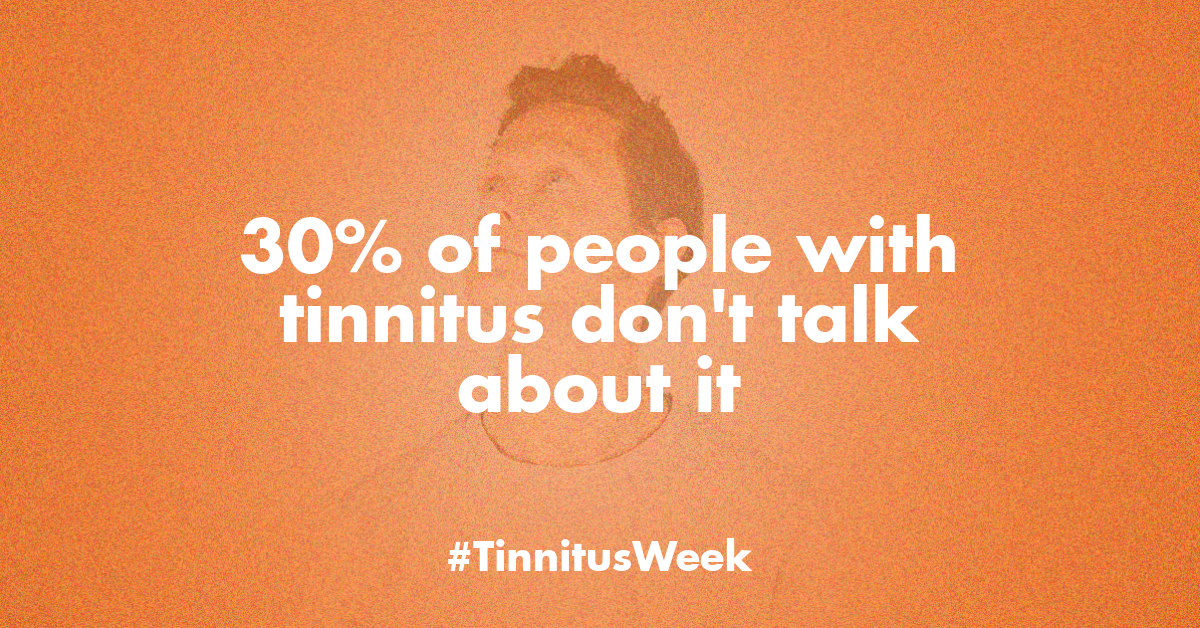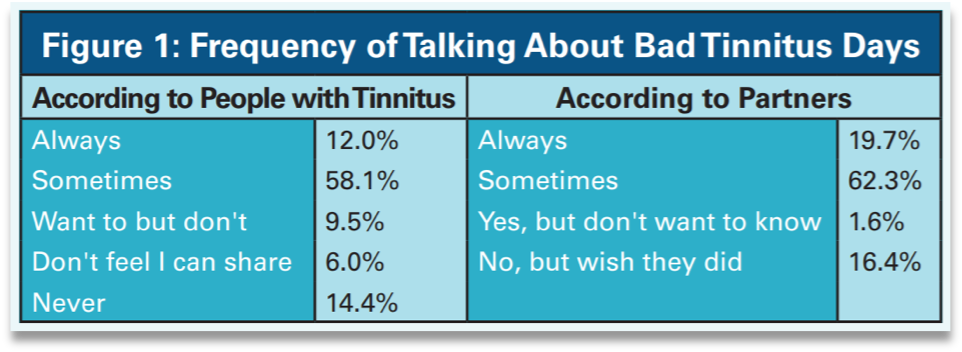
How Much Do You Talk About Your Tinnitus?
Tinnitus Week 2019 / Day 1
We’re kicking off Tinnitus Week 2019! As you can read in our general announcement of Tinnitus Week, we will be posting daily “nuggets” of insight, all harvested from surveys we conducted in the past, to explore topics related to 2019’s theme of Isolation.
Let’s start by looking at some data on how frequently people talk about their tinnitus on bad days. Our research shows that 30% of people don’t talk about their tinnitus at all with any friends, family or loved ones, in the moments when they are struggling to cope:

Source: Tinnitus Hub “Support Matters” survey (2018). See full details here.
Reviewing the open-ended responses from the same survey, we can summarise people’s reasons for not discussing their tinnitus as follows:
- People just don’t understand, because they don’t experience it themselves
- People are generally dismissive and don’t see it as a life impacting condition
- It just doesn’t seem real to others; it’s an invisible/hidden disability
- People think it’s all in your head or that you’re crazy
- People don’t understand that severe chronic tinnitus is different from mild/fleeting tinnitus
- People don’t understand that sound can hurt (with regards to hyperacusis)
- It gets frustrating when people advise to “just ignore it”
It’s clear that many tinnitus patients feel, to some degree, misunderstood, and that this makes it harder to talk about the condition. A vicious cycle perhaps?
Some (anonymous) quotes from the survey further demonstrate this:
“Like many invisible illnesses, it is one of those conditions that is nearly impossible to understand when you’re not suffering from it.”
“I don’t want this to be a burden for them if it has to be a burden for me, so I don’t talk about it more than I need to.”
We wonder what needs to happen for people to feel more comfortable discussing their tinnitus struggles with those close to them? That’s something we hope to get more insight into.
All of this has broader implications than just our personal relationships. After all, if we can’t even open up to our loved ones, how can we convey to the broader public what living with tinnitus is really like?
This is a struggle we continuously run into when it comes to awareness raising: People are simply hesitant to share their stories publicly, i.e. beyond the confines of closed (online) support groups. Without making these stories public, the impact of tinnitus on quality of life remains largely hidden.
As long as the plight of tinnitus patients – whether those only somewhat impacted or the most severe sufferers – remains hidden, it will remain a huge challenge to raise funding for tinnitus research or advocate for better tinnitus care.





